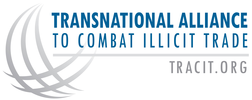 This article was originally published by the Group of Nations G7 Summit Global Briefing Report Review Illicit trade is a major and growing policy challenge worldwide. From smuggling, counterfeiting and tax evasion, to the illegal sale or possession of goods, services, and wildlife, governments are losing billions in tax revenues, legitimate businesses are undermined, and consumers are exposed to poorly made and unregulated products. These crimes in turn are tied to human rights and labor rights violations, money laundering, illicit financial and arms flow, child labor, and environmental degradation. The World Economic Forum's annual Global Risks Report lists illicit trade and the associated proliferation of illicit economic activity as a “global risk” with the potential to cause significant negative impact for several countries or industries within the next 10 years. For governments, illicit trade has an extensive destabilizing impact on global security due to its central role in facilitating transnational organized crime and illegal flows of money, people and products across borders. This in turn undermines the formal authority of rule of law, which can destabilize business and discourage investment. The Group of Seven The UK is taking on the Presidency of the G7 at a critical time for the world. While new vaccines offer a way to end the COVID-pandemic, the virus continues to wreak havoc across the globe and new variants threaten the global recovery. The pandemic has also allowed an unremitting illicit economy to expand and take root. Many factors shape the dynamics of illicit trade, from the international political and security landscape to macro socio-economic dynamics and national law enforcement capacity - all of which have been affected by the global COVID-19 pandemic. While the immediate effect was predictably to slow down all forms of economic activity, including the illicit, the COVID-19 pandemic spawned new markets for illicit trade, like falsified vaccines, and deepened age-old illicit trade in alcoholic beverages, tobacco and counterfeits. While initially set up as an informal forum for dialogue between leading economic powers to coordinate economic and financial policies, the G7 has increasingly used its clout to address common major global challenges including peace and security, counter-terrorism, development, health, climate change, as well as the threat of illicit trade. This year’s Leaders’ Summit, held in Carbis Bay, Cornwall on 11–13 June 2021, saw the G7 continue to demonstrate leadership against several illicit trade challenges: Forced Labour The G7 has made several pledges to eradicate forced labor, starting with their 2015 Elmau commitment to foster sustainable supply chains and then G7 Social Ministers pledging to promote decent work, responsible business conduct and human rights due diligence in global supply chains in 2019. This was also reinforced by G20 Labor and Employment Ministers in Mendoza, in 2018, who committed to eradicate child labor, forced labor, human trafficking, and modern slavery. Leaders in Carbis Bay continued this path by agreeing to work together to ensure that global supply chains are free from the use of forced labor - specifically highlighting state-sponsored forced labor of vulnerable groups and minorities, including in the agricultural, solar, and garment sectors - and tasked their Trade Ministers to identify areas for strengthened cooperation and collective efforts towards this goal. Human rights abuses—specifically in the form of forced and child labor—are a fundamental characteristic of illicit economic activity. Joint and decisive action by the G7 to address forced labor in global supply chains is important, but the far greater challenge that, to date, has received too little attention is addressing these human rights and labor violations in the informal sectors of the economy – many of which are tied to illicit trade. In 2019 the UN General Assembly announced that 2021 would be the “International Year for the Elimination of Child Labour”. While the past decade has seen child labour decrease by 38%, 152 million children are still affected. And the COVID-19 pandemic has considerably worsened the situation. Without decisive and coordinated action against illicit trade, governments around the world will fall short of their targets to root out child labor.  Illegal Timber Building on the 2016 Ise-Shima Summit’s pledge to tackle illegal logging, Leaders in Carbis Bay committed to ensuring that their forestry policies encourage sustainable production, the protection, conservation, and regeneration of ecosystems, and the sequestration of carbon. The inclusion of this pledge is particularly important given that reduced forest monitoring and fewer patrols by enforcement agencies during the COVID-19 pandemic has created opportunities for criminal groups to expand illegal logging activities. As a result, there has been an uptick in illegal logging, with reports of increased logging activity from Brazil, Colombia, Cambodia, Indonesia, Nepal and Madagascar. IUU fishing Illicit fishing is an abhorrent crime against planet earth and SDG 14 mandate to protect life below water. It generates billons in revenue for transnational organized crime and the criminals involved in illegal, unreported and unregulated (IUU) fishing operations also make use of fishing vessels for related criminal activities, such as drugs and firearms trafficking, money laundering, tax fraud, bribery, migrant smuggling, trafficking in persons for the purpose of forced labor, piracy and acts of terrorism. Subsidies to the fisheries sector, roughly US$35 billion annually, can exacerbate unsustainable fishing practices by artificially increasing fishing capacity – which in turn promotes overfishing and other destructive fishing practices. By some estimates these subsidies have helped produce a worldwide fishing fleet that is up to 250 percent larger than is economically and environmentally sustainable, driving overexploitation of already depleted resources. This year Leaders will have a unique opportunity to make good on their longstanding pledge to step up efforts to prevent IUU fishing. If their Carbis Bay pledge of working with other WTO members in “reaching a meaningful conclusion to the multilateral negotiations on fisheries subsidies” translates into an agreement ahead of MC12, this would demonstrate the value of collective G7 action and create a pivotal moment for the world’s oceans and the livelihoods of fishers and other workers.  Online fraud The COVID-19 pandemic has accelerated the digital transformation, bringing about a surge in online shopping and other ecommerce activities. Unfortunately, this exponential growth has also brought with it a flood of online fraud, with unscrupulous counterfeiters seeking to exploit the health crisis by selling everything from fake testing kits, treatments and personal protective equipment (PPE), to falsified medicines and dubious vaccines. This development has intensified the need for better rules and standards to ensure that the business practices of ecommerce platforms sufficiently prevent bad actors from selling unregulated, unsafe or otherwise fraudulent products to consumers. The G7 has supported the WTO’s Joint Statement Initiative on E-commerce (JSI), which may provide the first steps in this direction, as the outcome of the JSI negotiations will likely affect the governance of various dimensions of e-commerce, with implications for all countries, whether they are party to these negotiations or not. The time left between now and the 12th WTO Ministerial Conference is very critical if Leaders are to address, and mitigate, the negative impact that online fraud and illicit activities have on building trust in e-commerce and ensuring consumer protection. The recovery As G7 Leaders move from crisis management into recovery mode, it will be important to amplify their attention to the problem of illicit trade and to press for implementation and enforcement of all its standing commitments. Without continued political will to prioritize the problem there is a real threat that illicit trade activities caused by the pandemic become permanent features of the post-pandemic economy. While COVID-19 has been a catalyst for new and increased illicit trade, it also underscores the importance of sustained collaboration between governments and private sector partners. TRACIT has worked with industry partners during the pandemic to publish papers and reports thar raise awareness and help protect consumers from COVID-19-related fraud. Our efforts show that business can contribute by continuing to develop technical solutions that protect the integrity of supply chain, and share intelligence, data, resources and measures that can mitigate illicit activity. And business is willing to work with partners to convene stakeholders, improve awareness, expand the knowledge base, and energize the global dialogue. Governments, however, need to improve regulatory structures, set deterrent penalties, rationalize tax policies, strengthen capacity for more effective enforcement, and educate consumers. This is a matter of urgency and G7 government efforts to fight illicit trade should be considered to be critical investments that pay tangible dividends for a strong and sustained economic recovery. Louis Bonnier Director of Programs, TRACIT Comments are closed.
|
About tracit talking pointsTRACIT Talking Points is a channel we’ve opened to comment on current trends and critical issues. This blog showcases articles from our staff and leadership, along with feature stories from our partners in the private sector and thought-leaders from government and civil society. Our aim is to deepen the dialogue on emerging policy issues and enforcement measures that can be deployed against illicit trade.
Categories
All
Archives
February 2024
|
|
Transnational Alliance to Combat Illicit Trade (TRACIT) is an independent, non-governmental, not-for-profit organisation under US tax code 501(c)(6).
© COPYRIGHT 2024. ALL RIGHTS RESERVED. |
Follow us
|
